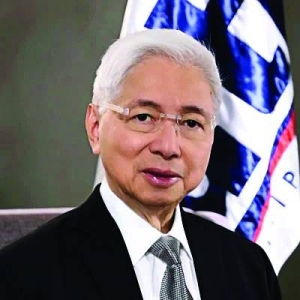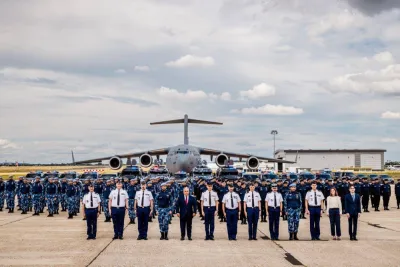Philippines trade official keen on knowledge sharing, tech transfer with Qatari businesses


DTI Secretary Alfredo E Pascual.
DTI Secretary Alfredo E Pascual noted that the agency has initiated several “interventions,” such as innovation and entrepreneurship, artificial intelligence (AI) and research and development (R&D), Industry 4.0 and advanced manufacturing technologies, a National Innovation Gateway, and a Startup Development Programme.
Pascual’s statements reflect the Philippines’ plan to strengthen economic and trade ties with Qatar, which was pursued, particularly during the DTI’s high-level discussions with Qatari officials and businesses held on the sidelines of the Qatar Economic Forum (QEF) held in May. During the forum, Pascual participated in a panel discussion on ‘Creating Competitive Economies’, where he showcased the Philippines’ economic growth.
“We support knowledge sharing and technology transfer by positioning the Philippines as a manufacturing hub, innovation hub, and centre for training and education in the region,” Pascual told Gulf Times.
According to Pascual, some of the DTI’s interventions include the establishment of Regional Inclusive Innovation Centres (RIICs), which aim to connect and integrate the Philippines’ innovation and entrepreneurial ecosystem with a network of innovation partners from industries, universities, government, startups, and investors, among others.
“It also seeks to commercialise research that aligns with market demands, enhance regional competitiveness, and create better employment opportunities and sustainable economic prosperity in various regions,” said Pascual, adding that the DTI has already established 13 RIICs in 11 regions across the Philippines.
In the pipeline are two initiatives that focus on enhancing AI adoption in the Philippines, such as the National Centre for AI Research (NCAIR) and the Industry 4.0 Pilot Factory (I4PF).
Pascual explained that the NCAIR is envisioned as a partnership between the government and the private sector to perform collaborative AI R&D and technology applications, offer consultancy services and AI tech products, conduct data literacy programmes, and attract leading global firms to set up R&D activities.
“This is seen to serve as a technology provider and research leader in areas like precision agriculture, smart city, resilience technology, and smart manufacturing,” Pascual further explained.
On the other hand, Pascual said Industry 4.0 Pilot Factory (I4PF) is projected to host pilot demonstrations and case applications of Industry 4.0 and advanced manufacturing technologies that local large enterprises, MSMEs, and the academe can access.
“It can also house pilot, demonstration, and learning laboratories for innovative products, modern technologies, and digital processes, as well as serve as a training and research hub where industries can have insights and hands-on experience on various Industry 4.0 applications,” he said.
Pascual said the ‘DTI National Innovation Gateway’, a collaboration initiative between DTI and the Asian Development Bank (ADB), is one of the key components (currently in the pipeline) of the Promoting Research and Innovation to Strengthen Transformation of Industries and Enterprises (PRISTINE) Project.
“The National Innovation Gateway aims to make Manila a Centre of International Innovation Collaboration, functioning as a symbiotic living laboratory for innovation, invention, and creativity,” he said.
Pascual added: “Pursuant to the Innovative Startup Act or RA No 11337, this programme consists of several incubation, acceleration, and financing activities to support startup development in the country. Since 2017, we have promoted 121 Philippine startups in 26 international events in 10 countries.”
While in Qatar for the QEF, Pascual met with HE the Minister of Commerce and Industry Sheikh Mohamed bin Hamad bin Qassim al-Thani to discuss ways to enhance bilateral economic ties, including key areas of co-operation.
Pascual also met with two leading local firms, Qatar Cool and Baladna, to explore district cooling system opportunities in the Philippines and ways to boost the Southeast Asian nation’s self-sufficiency in dairy production.
Similarly, Pascual emphasised that the Philippines has identified agribusiness/agriculture; energy efficiency technologies and renewable energy (RE); infrastructure and public-private partnership (PPP) projects, such as real estate development and logistics; AI; Information Technology and Business Process Management (IT-BPM); manufacturing; oil and gas; processed and speciality food (Halal food); and tourism, including hospitality, as specific sectors or industries that could be infused with investments from Qatar.







